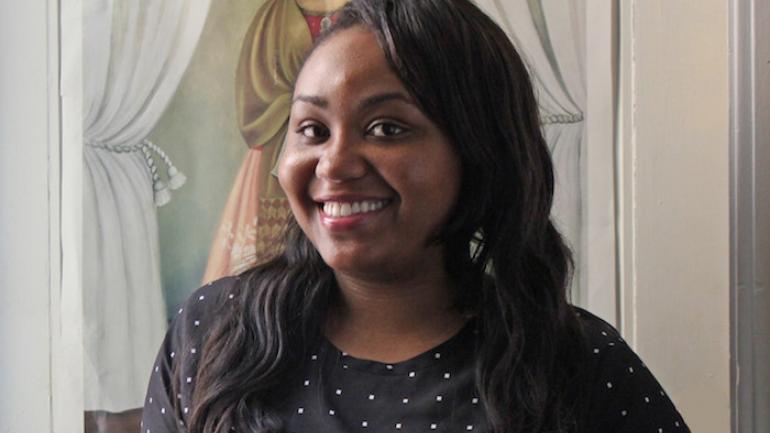
Saundre Allen joined Gateway High School as the School Counselor this past fall. But given the praise and appreciation expressed by both her colleagues and students, Ms. Allen has already made quite an impression. She insists on meeting "people where they are" and spends a good part of every day in the "messy" part of adolescence, what she calls a must in her work with students. Administrators say that with Ms. Allen on board, they have already gained real traction with challenged students because of her commitment to the process. She credits the Gateway culture.
"In many school settings, staff and kids are burned out," Ms. Allen says. "But the difference at Gateway High School is that no one is ignoring these issues. These are really tough jobs, and we spend a lot of time here in circles and conversations about environmental stressors that wear people down."
Ms. Allen ascribes her ease with students to her own upbringing. Growing up in a single-parent household in Oakland, she attended public schools and now insists it was the teachers and counselors who really helped shape her life. She, too, was the first in her family to attend college and knows firsthand the challenges that come with that family dynamic.
"For me, the main thing is transparency," she shares. "I had a student in my office recently who told me he thinks that teachers aren't real. He is convinced that they go into a closet at the end of the day and power down. He needed the space to say it, and in turn it helps him connect on a really human level. I always let the students know that they decide what they want to share with me."
Ms. Allen spent many years working with teens and low income families. One of the reasons she came to Gateway was the school's commitment to Restorative Practices. Adopted by the entire SFUSD district in 2009, Restorative Practices have continued to roll out and gain public notoriety in the last couple of years. One tenent of the Restorative Practices philosophy is inclusion. This means that educators and administrators execute a high level of support as they encourage and work with students to participate in the process of self-discovery and self-awareness. For many students, this non-punitive approach to wrongdoing is a novel experience.
"I am very intentional when I meet with students and families," says Ms. Allen. "I often use Maslow's Hierarchy of Needs as a tool in conjunction with Restorative Practices. But the real success comes when we circle the student with their teachers, too. Challenges in reading and writing often turn into ambivalence and acting out. When we come together as a genuinely caring and compassionate unit, everyone involved wins."
Ms. Allen leaves her door open between sessions and classes. She says that the sense of support - "opening up space for the good and bad" - and holding it is what makes the difference amongst her colleagues at Gateway.
"Administration and the teachers are all on the same page here," she says. "We all want the students to do well, especially those that struggle. But most importantly, when there is a struggle, they all 'get' it."
From the sound of it, Ms. Allen does too.